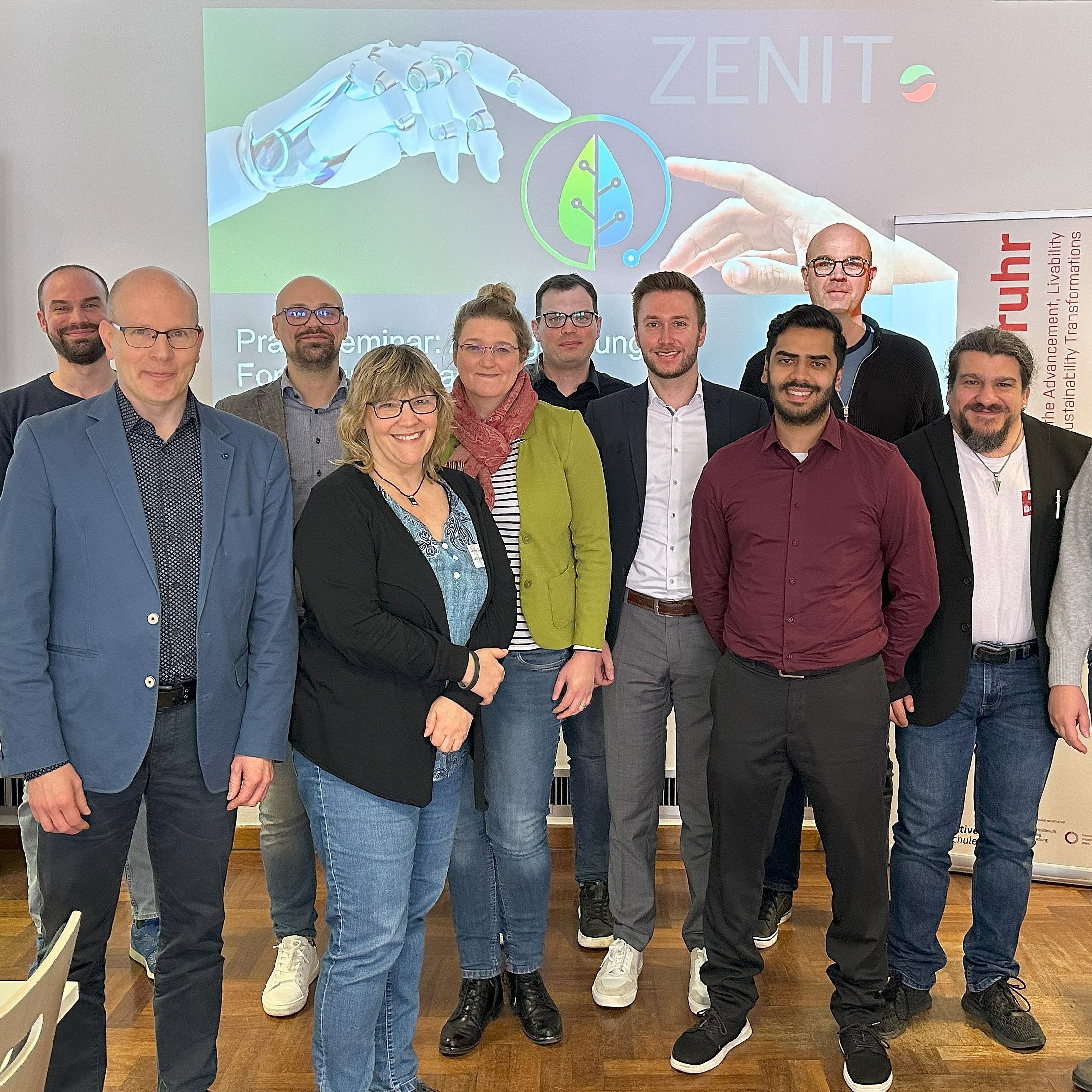Sergej Paveliev is an innovation expert and Head of Funding and Financing Consulting at ZENIT. His team of engineers, natural scientists and humanities scholars supports hundreds of companies in successfully applying for funding for their projects. Greentech.Ruhr, the network of the environmental economy in the Ruhr metropolis, had invited THALESruhr to a two-part workshop on precisely this topic: How can I get funding for my projects? Sergej Paveliev provided information about the funding landscape and talked to us about the challenges companies face when applying for funding.
Why do subsidies play an important role for innovation and transformation in companies?
Sergej Paveliev: When it comes to innovation and transformation, companies are operating in uncertain territory. Necessary investments are aimed at future competitiveness and may only pay off in the medium to long term. Innovation and change projects also regularly fail. Funding can not only open up access to the necessary resources for such projects, but also serve as a financial safety net and thus help to minimize risk.
What basic steps should companies take to successfully apply for funding for projects?
Sergej Paveliev: As in all areas, the chances of success are influenced by existing expertise and experience. Public guidance and advice services are particularly relevant for SMEs. In feedback with an expert, ideas should be explored, needs identified, possible investment modules concretized and projects outlined. Funding options can then be identified and evaluated. If a company's project fits the funding program, a successful application is realistic.
How do you identify the right funding programs for different types of projects?
Sergej Paveliev: The funding landscape can be sorted on the basis of the aforementioned specification of objectives, tasks and investment requirements of the entrepreneurial project. It should be noted that the programs and their application and selection procedures differ significantly. Important criteria for identifying suitable programs and their combinations are, for example, the object and purpose of the funding, the geographical area in which the funding is used, cost types, urgency of implementation, or specific aspects such as the technical discipline and the degree of development maturity.
What common mistakes do you encounter when applying for funding and how can you avoid them?
Sergej Paveliev: Fundraising efforts are regularly channelled incorrectly and applications are submitted to funding programs that are not optimally suited. This is followed by rejections. They are frustrating and the entrepreneur gets the impression that the funding landscape is not fair. An alternative program could often have been the solution. There are also mistakes that are made when applying for a suitable program: for example, unclear or incomprehensible descriptions. The reviewers know neither the applicant nor the potential of the project - they decide solely on the basis of the facts in the application. Formal errors and incomplete documents are also possible KO criteria. Sufficient lead time should therefore be planned for the application process if possible.
How do companies deal with the competition for limited funding and how can companies stand out positively?
Sergej Paveliev: We can extend this question a little further. In the end, it's not about acquiring resources for projects, but about successful results that contribute to the company's long-term competitiveness. Entrepreneurs should always keep an eye not only on industry-specific trends, but also on global trends and technological drivers. It is then important to understand for yourself how the combination of commercial success criteria and your own company's contribution to social challenges can be achieved. Projects with this character are very promising from a funding perspective. In the case of funding programmes in which funds are awarded in a competitive process, applicants should familiarize themselves as thoroughly as possible with the programme conditions and the objectives of the funding. Their own project should be based on this with qualitatively and quantitatively convincing arguments. In addition, there are also funding opportunities without a traditional competition, such as under the Research Grants Act, where there is even a legal entitlement.
This question What current trends do you see in the area of promotion and how should companies react to them?
Sergej Paveliev: The funding jungle will not become any clearer in the future. There will be more and more differentiation in the application and administration of funding. In my experience, embedding the acquisition of funds for short-term and medium-term projects in long-term considerations - i.e. in innovation and transformation strategies - is the decisive factor. However, SMEs in particular have only limited opportunities for their own efficient funding screening and management as part of innovation management. Hence my appeal: make use of the public advisory services.
More about ZENIT
For 40 years, the Zentrum für Innovation und Technik in Nordrhein-Westfalen GmbH (ZENIT) has been driving forward the innovation capability of small and medium-sized enterprises (SMEs) in particular - from broad awareness-raising to concrete implementation support for product, process or business model innovations. The consulting and support measures focus not only on innovative technologies, but also on organizational and management aspects for participatory transformation processes.


